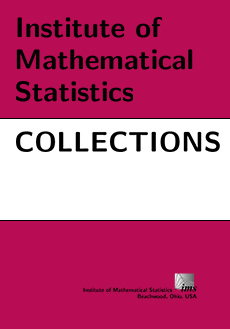Abstract
Power series distributions form a useful subclass of one-parameter discrete exponential families suitable for modeling count data. A zero-inflated power series distribution is a mixture of a power series distribution and a degenerate distribution at zero, with a mixing probability p for the degenerate distribution. This distribution is useful for modeling count data that may have extra zeros. One question is whether the mixture model can be reduced to the power series portion, corresponding to p=0, or whether there are so many zeros in the data that zero inflation relative to the pure power series distribution must be included in the model i.e., p≥0. The problem is difficult partially because p=0 is a boundary point.
Here, we present a Bayesian test for this problem based on recognizing that the parameter space can be expanded to allow p to be negative. Negative values of p are inconsistent with the interpretation of p as a mixing probability, however, they index distributions that are physically and probabilistically meaningful. We compare our Bayesian solution to two standard frequentist testing procedures and find that using a posterior probability as a test statistic has slightly higher power on the most important ranges of the sample size n and parameter values than the score test and likelihood ratio test in simulations. Our method also performs well on three real data sets.
Information
Digital Object Identifier: 10.1214/193940307000000068


